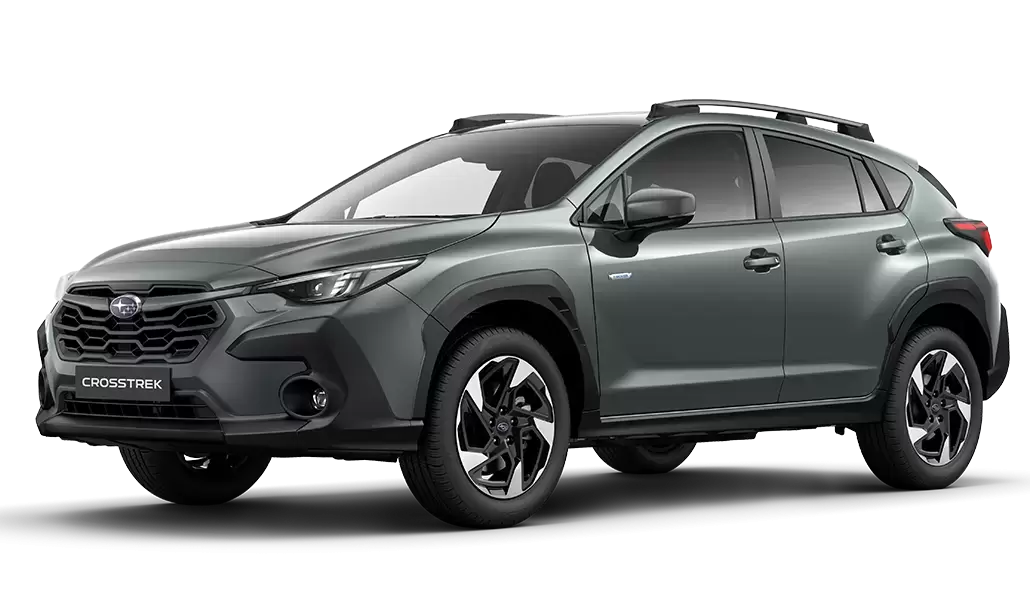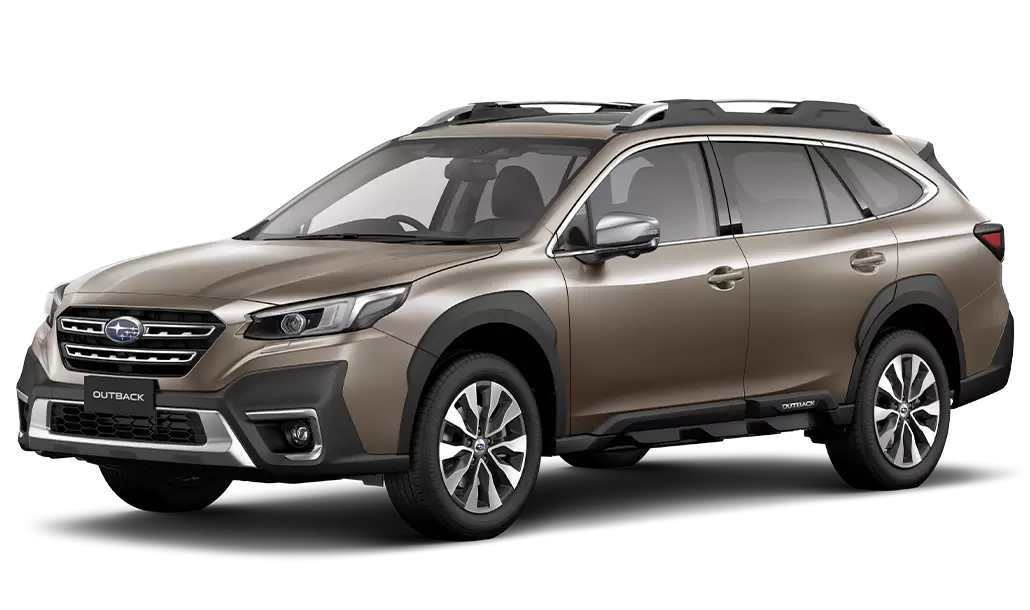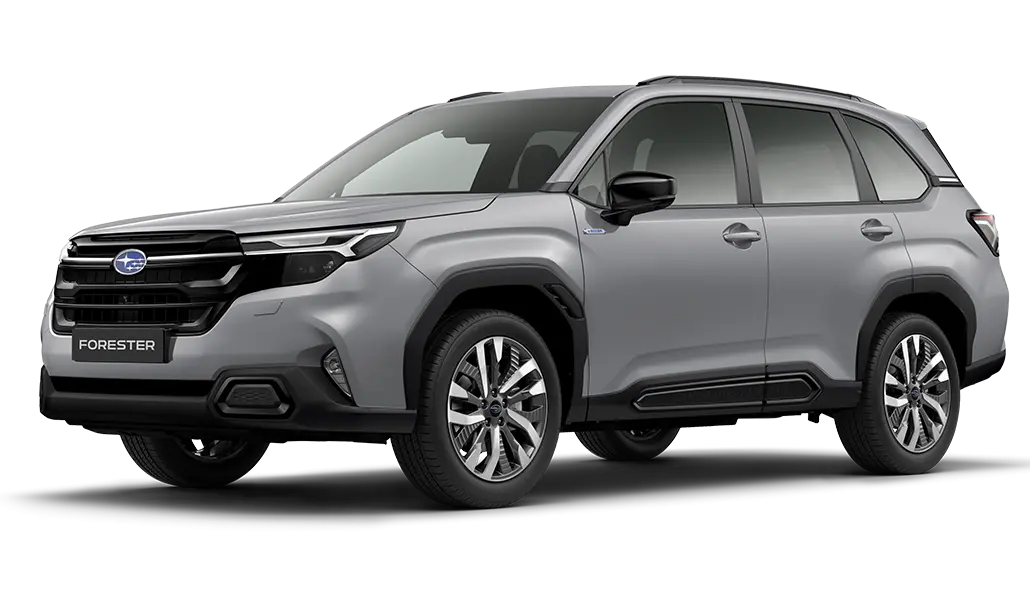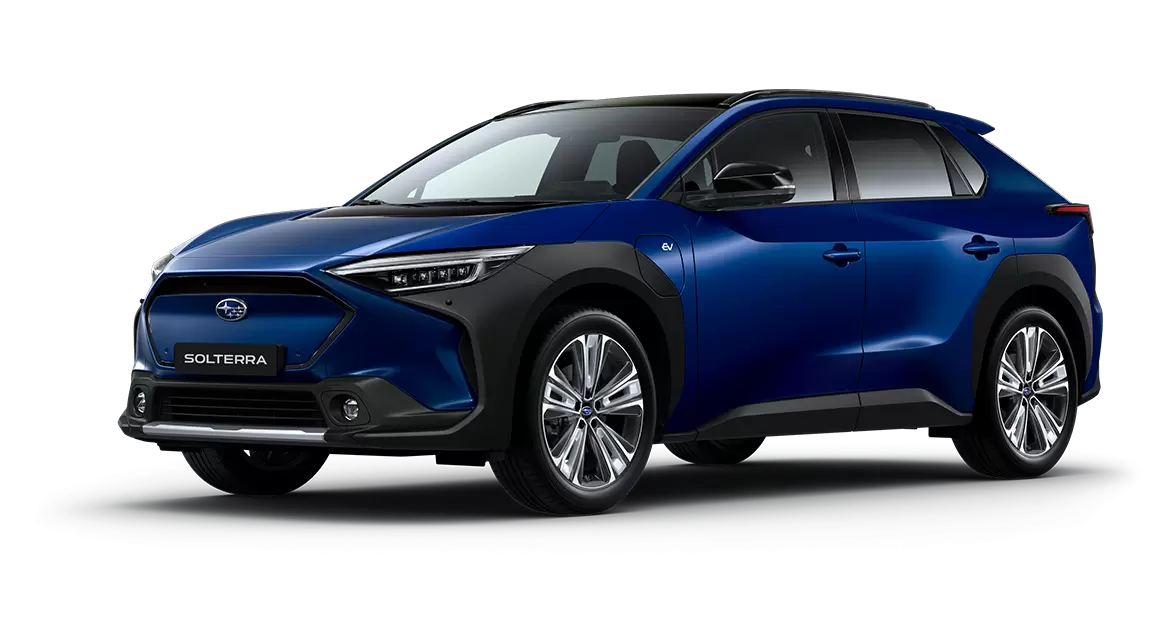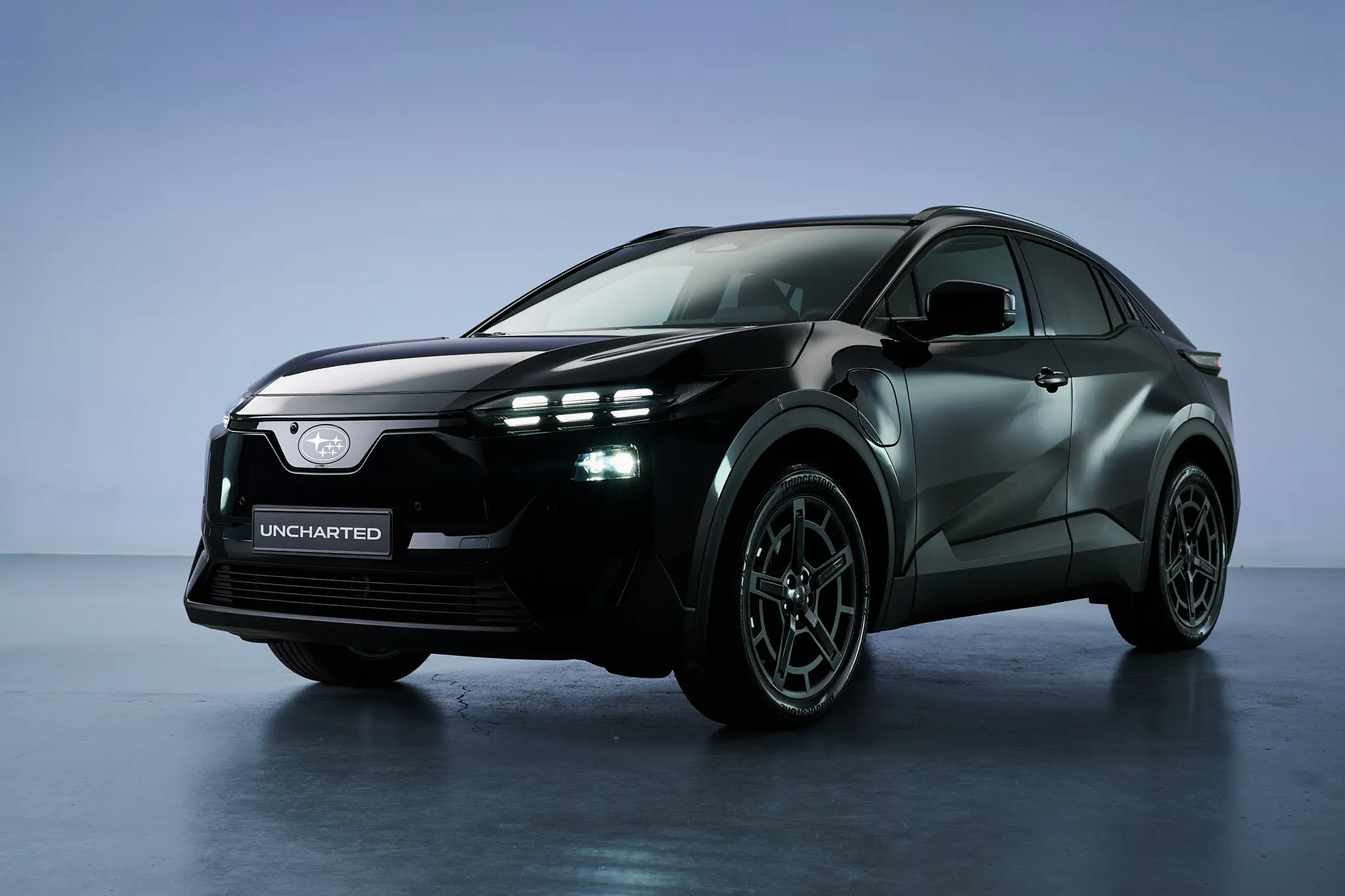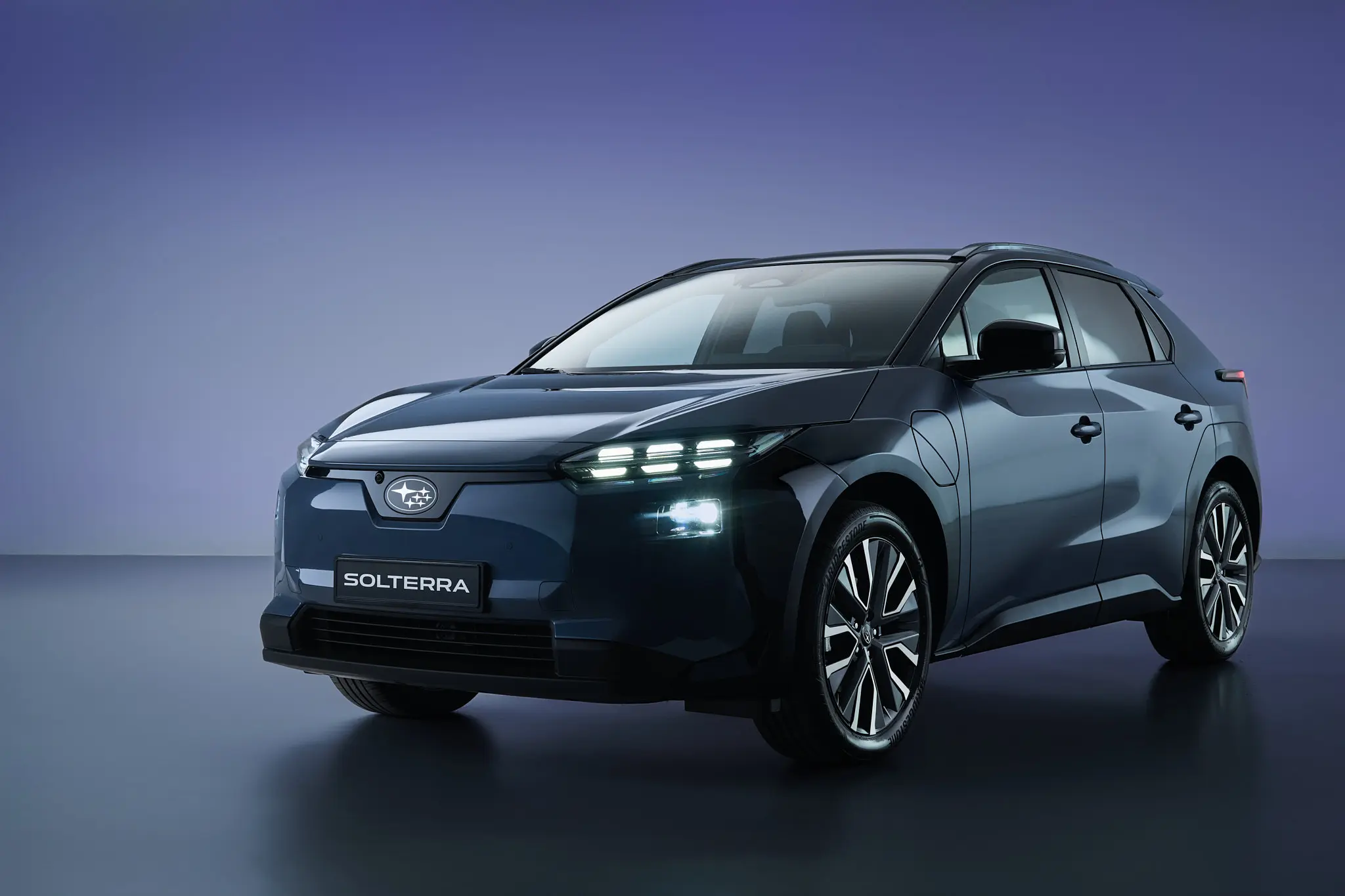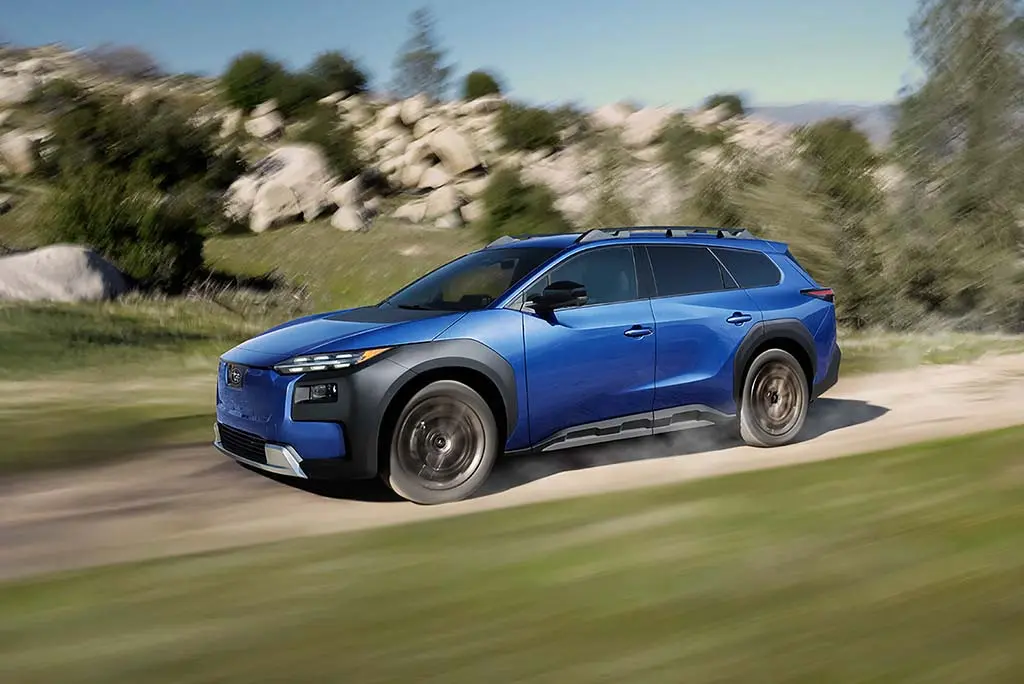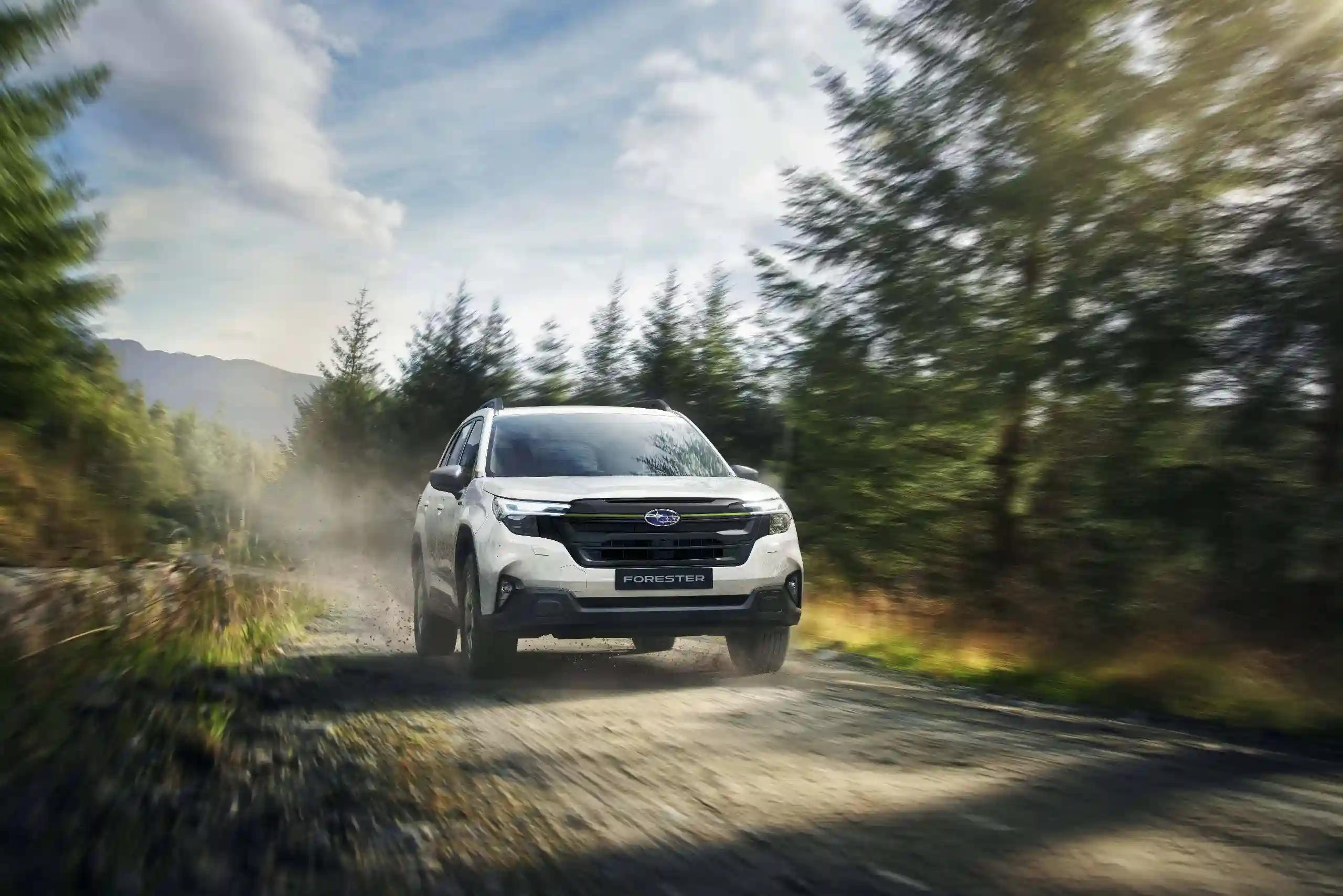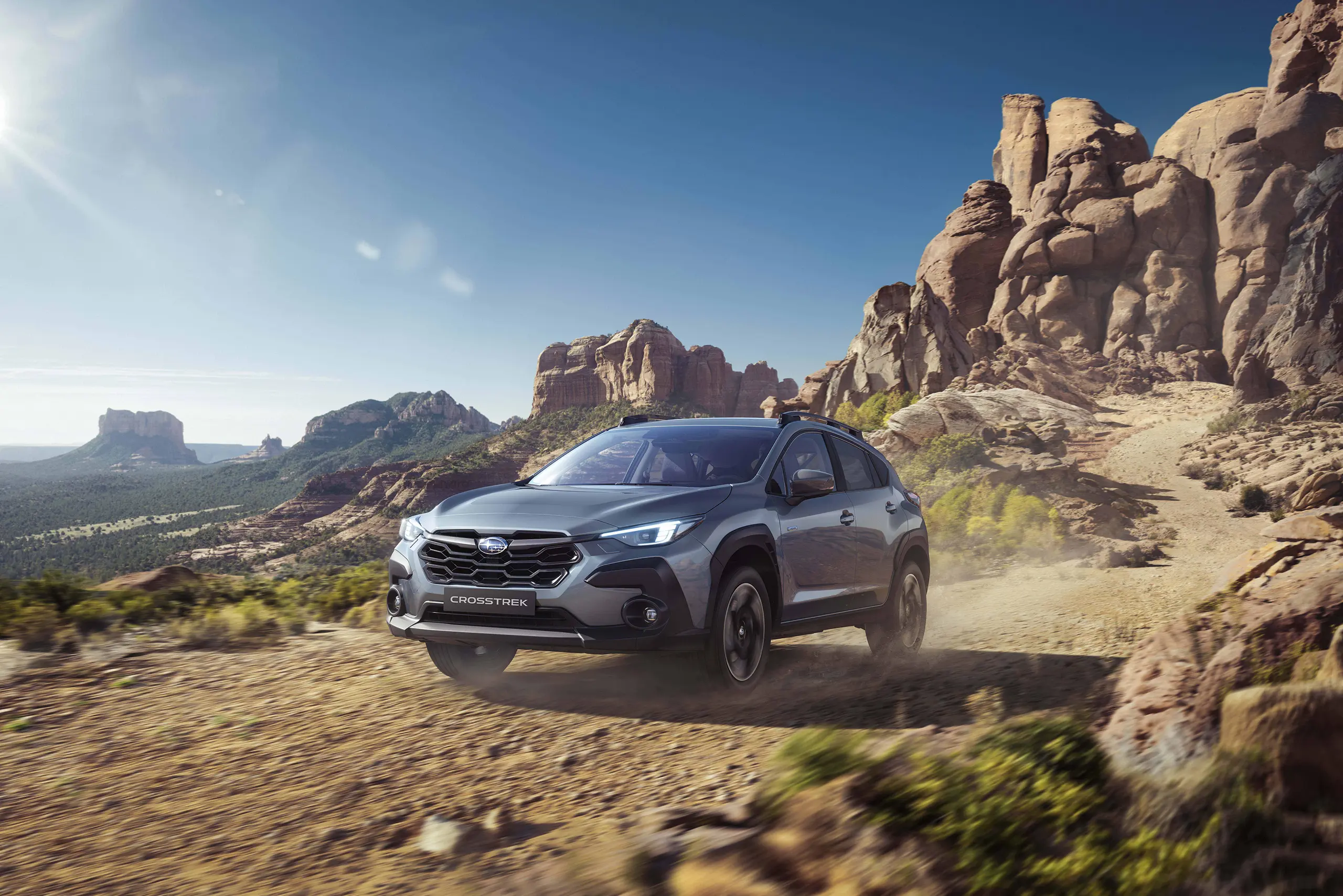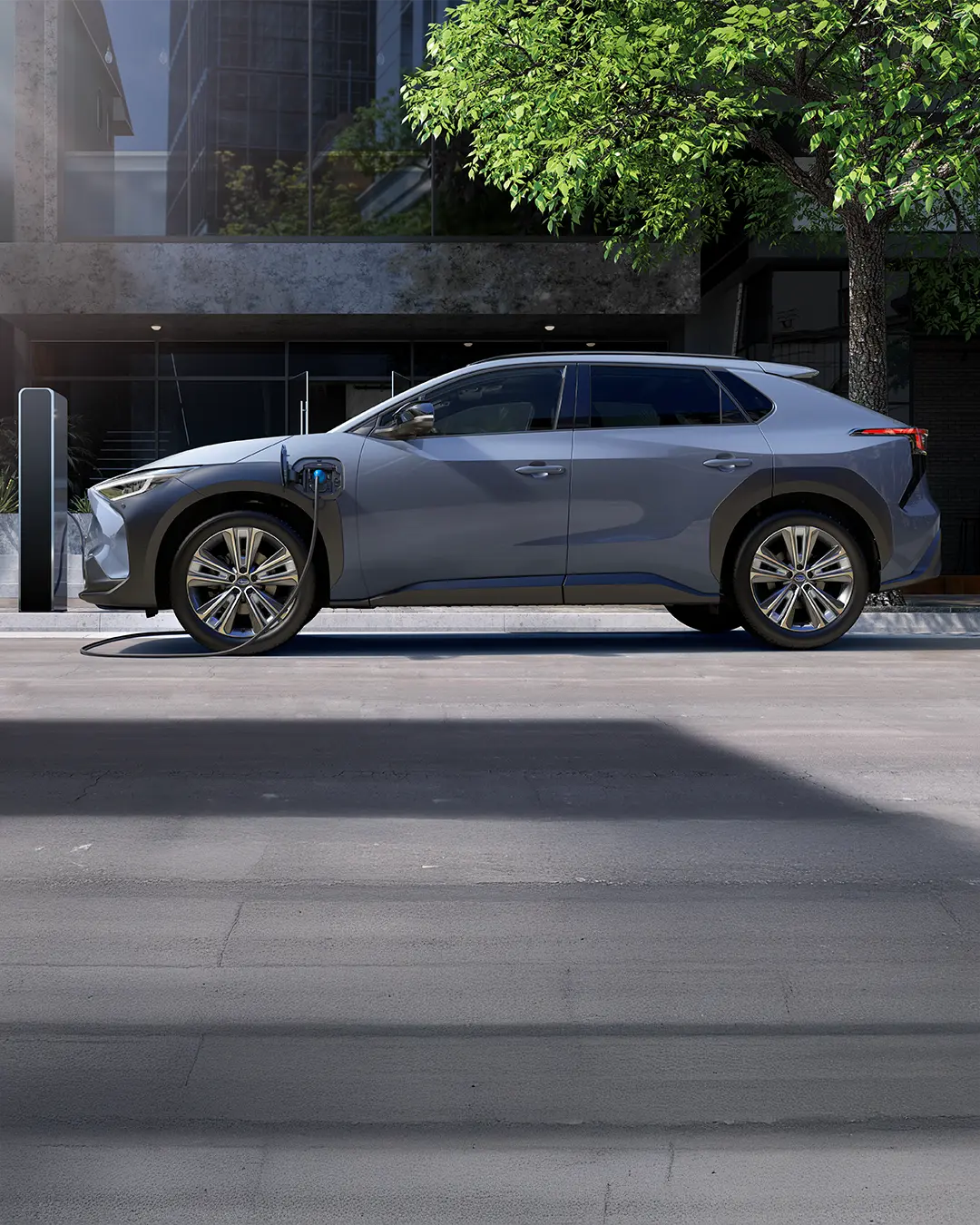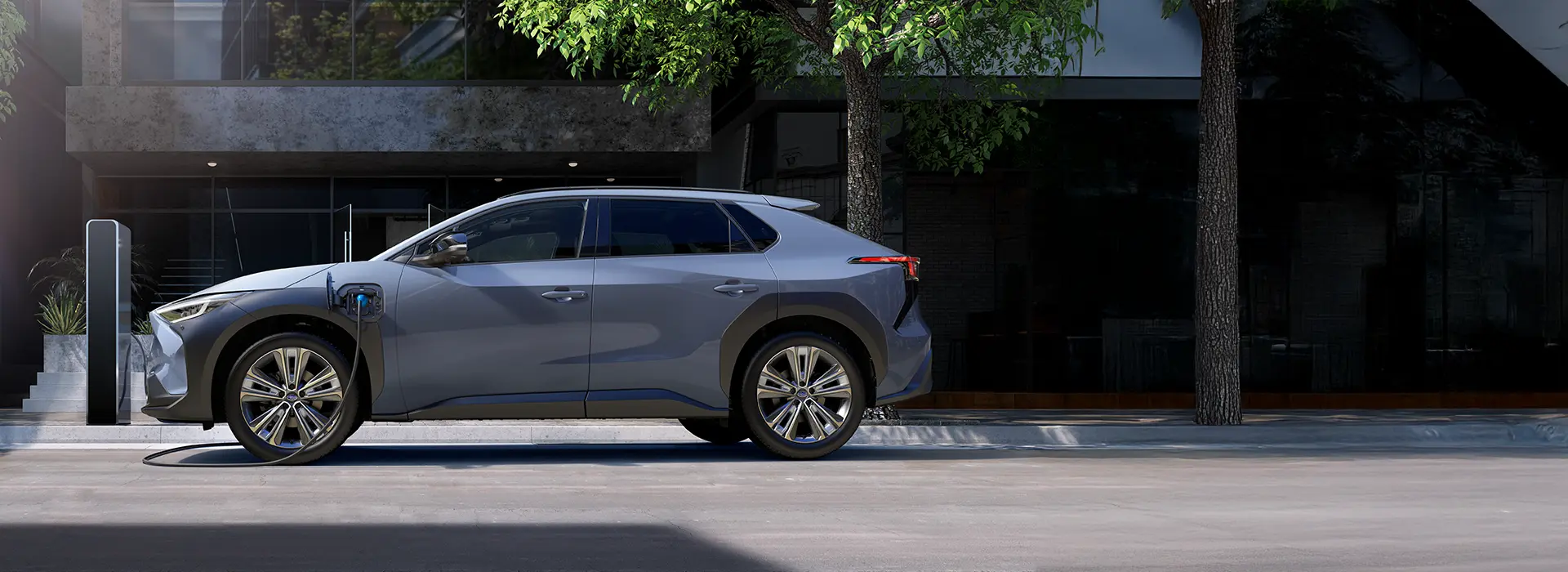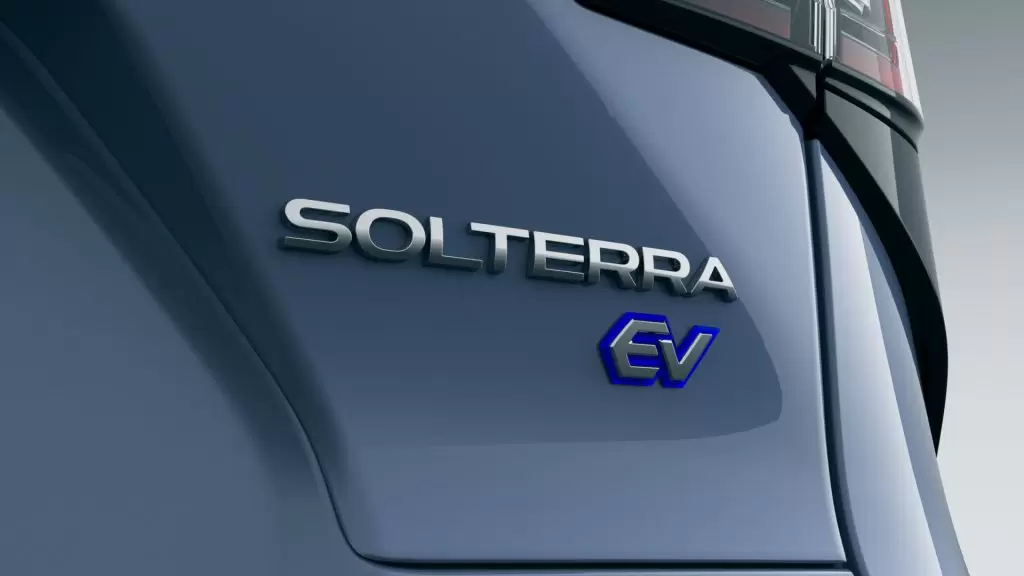
Solterra: Subaru’s All-Electric SUV
Designed from the ground up as an electric vehicle, the Solterra offers an impressive range, rapid charging capabilities, and Subaru’s trademark Symmetrical All-Wheel Drive for unparalleled control. With a spacious interior, advanced safety features, and zero emissions, the Solterra is the ultimate choice for a greener future.
Join the electric revolution with Subaru. Experience the Solterra today and discover a new era of driving.
Why you'll love the Subaru electric SUVs
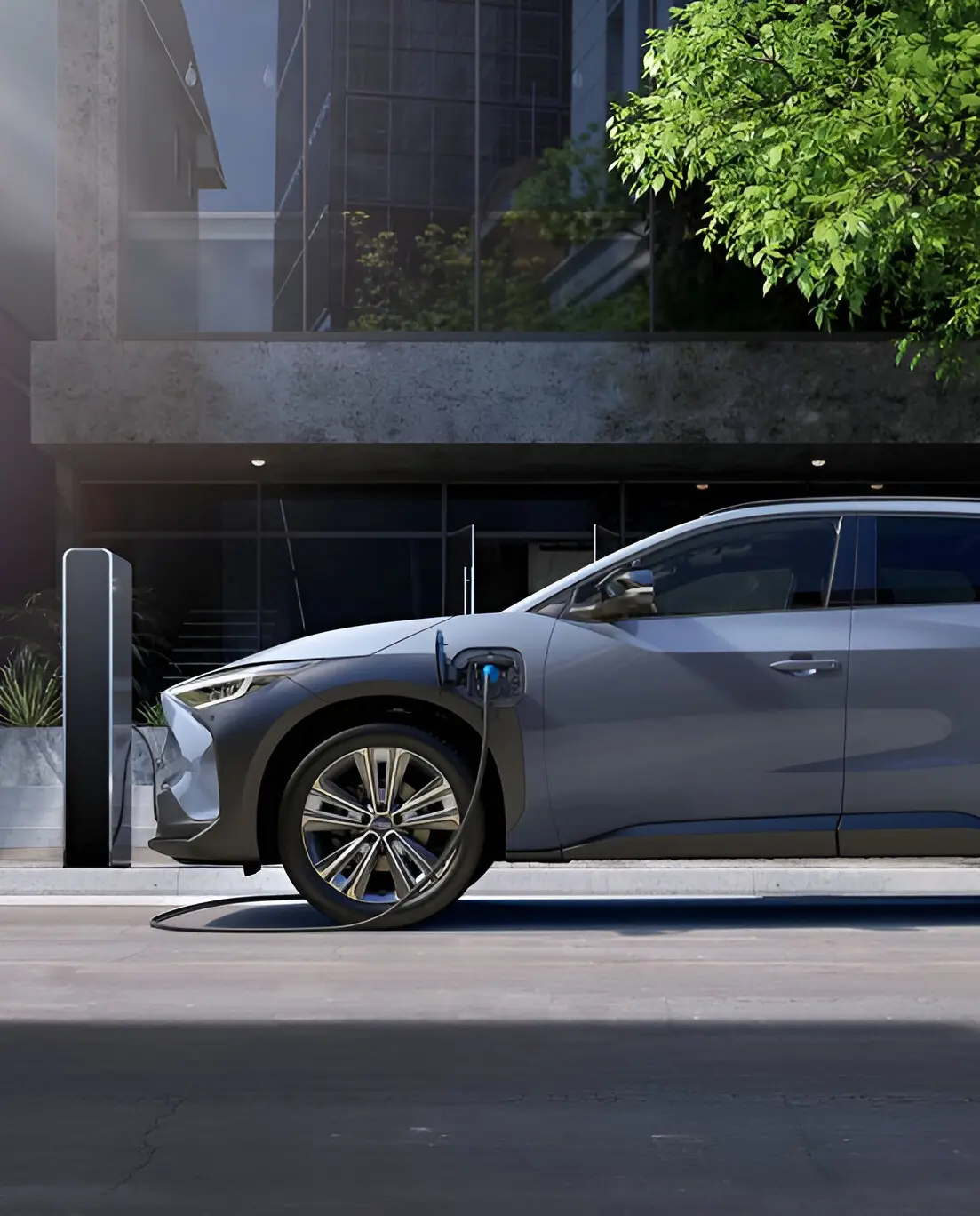
100% All-electric car range
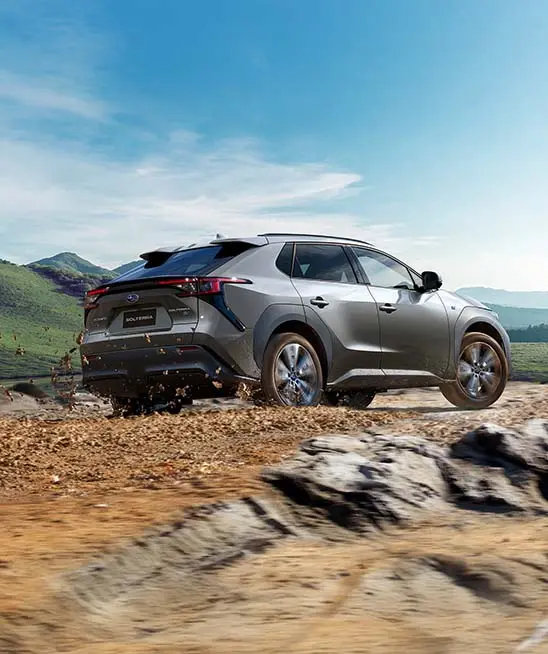
Reliable on all terrains
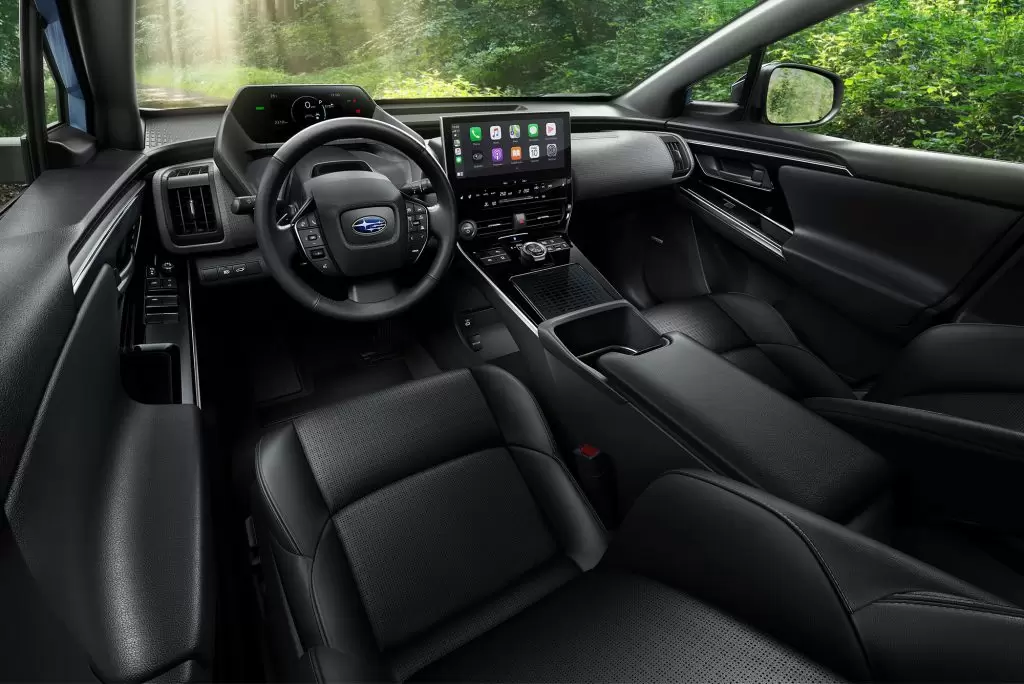
Precise control for smooth driving
Take a step further into the world of electric SUV cars

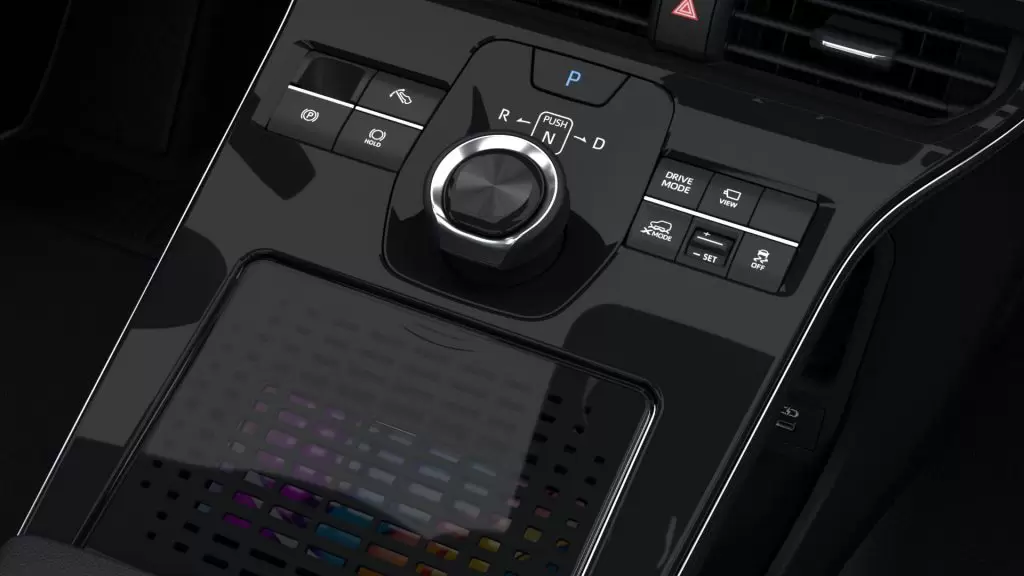
Do electric cars have gears?
Electric cars FAQs
How long does it take to charge an electric car?
It depends. The time it takes to charge an electric car can vary from 30 minutes to over 24 hours. Where you charge it from, the battery size and even weather can influence how long charging will take. We created a quick guide to electric car charging with a few good tips you will find useful.
Are all electric cars automatic?
Yes, all electric cars are automatic. They all have single-speed transmission which provides instant torque. They do not require gear shifting or clutch control for different speeds. This simplifies the driving experience and makes an efficient drive for any user.
Are electric cars cheaper to run and maintain?
Many EVs are cheaper to run than petrol cars. There are a few reasons for this.
- EVs have fewer moving parts within the vehicle, so they will need less maintenance and will therefore cost less in the long run.
- Recharging the electric vehicle’s battery will cost less than fuelling with petrol. This does depend on where you’re charging the EV and the tariffs of your energy provider. However, charging at home will cost less than using a public charging station. Check our breakdown of all the electric car benefits you can expect when choosing your new vehicle.
We've also worked out how much you are likely to pay for charging your new electric car. So, take a look at our guide for more tips.
How does an electric car work?
The electric motor of a car powers the whole vehicle. DC power is taken from the battery, turns into AC power and then the electric motor transforms electrical energy into mechanical energy. I.e., power is drawn from the battery pack, which then spins the motor. This provides energy and, therefore, torque to the wheels which allows the car to accelerate.
Other important features include the controller, which regulates electricity flow, and regenerative braking. This is when the driver presses the brakes or takes their foot off the accelerator and the kinetic energy is converted back into the battery and, in turn, recharges it.
What is an electric vehicle?
An electric vehicle (EV) runs entirely on electricity 100% of the time which means they have an electric motor instead of an internal combustion engine and a battery instead of a fuel tank. As such an EV doesn’t require petrol or diesel to drive but instead is plugged into a public charging station or a home charger and electricity is taken directly from the national grid.
EV will make less noise because there are fewer moving parts. This also means less maintenance. EVs do not have tailpipes and therefore produce no emissions, making them a more environmentally-friendly option.
Are electric cars and electric SUVs better for the environment?
Compared to a petrol SUV, an electric SUV is often better for the environment. This is because they don’t produce tailpipe emissions that contribute to greenhouse gas emissions and air pollution. Similarly, the high-quality batteries and their production reduce lifecycle emissions and the overall carbon footprint of EVs. The EV industry is working to make the battery production process as sustainable as possible, while also developing a battery recycling process. So, we are expecting even more sustainability wins in the future of electric cars.
Can you tow with an electric car?
You can tow with an EV if it has Type Approval. Not all EVs have this specification, so it is important to check with the manufacturer beforehand. Type Approval for EV towing will include a test to check if the brakes, suspension and chassis can hold the extra weight. It’s also important to acknowledge the impact towing could have on your electric vehicle. The extra weight can increase energy consumption and the brakes and suspension will be under more strain.
Do electric cars need MOT?
Yes, like a traditional fuel car, electric cars need an MOT when they are 3 years old, and then again once a year every year afterwards. This ensures the car is road-safe by assessing the brakes, tyres, lights, windows, windscreen, and steering. Unlike a petrol car, an electric car won’t be subjected to an emissions test.
Do electric cars have engines?
How far can electric cars go?
The distance an electric vehicle can travel depends on the brand and manufacturer. Our electric SUV, the Subaru Solterra, has a range of up to 289 miles. However, the driving range can fluctuate depending on:
- Weather conditions – as cold weather can reduce battery range.
- Driving style, i.e., how quickly you accelerate and brake, can take more energy.
- Battery size – larger batteries contain more energy for longer distances.
- Vehicle weight – a heavier vehicle will increase energy consumption
- Air conditioning and heating – this can drain the battery, which can affect the range
- Where you’re driving – cities with traffic can increase energy consumption because of the start-stop nature of the driving conditions.
Can you jump start an electric car?
You can jump-start the 12-volt battery in an EV but never the high-voltage battery pack. To jumpstart the 12-volt battery pack, you can use a traditional fuel-powered car or a jump starter. This will power the car’s electronics and allow the car to start. It’s important to check with the manufacturer before doing this, however.
Do electric cars use oil?
Electric cars don’t require engine oil because they don’t have an internal combustion engine, valves or pistons. These parts require oil for lubrication. Some EVs do require a small amount of engine oil if they have a single-gear reduction gearbox.
EVs will require brake fluid for the brake system and coolant for the battery and electronics.
Do electric cars have exhaust pipes?
No, electric cars do not have exhaust pipes or tailpipes. This is because they don’t have an internal combustion engine (ICE) – they have an electric motor. EVs don’t produce pollutants or gases because there is no fuel to burn, so no emissions are produced, making them better for the environment.
Are electric cars heavier than petrol cars?
Yes, EVs are heavier than petrol or diesel cars. The battery packs in an EV are much larger because of the amount of power it needs to contain. Similarly, the electric motor is also a heavy component, which contributes to the heavier weight. The battery pack is usually placed in the centre of the car, which improves its stability.
Do electric cars need oil change?
No, electric cars do not need an oil change. This is because they don’t have any parts, like ICE, valves, or pistons, that require oil. One caveat is EVs with single-gear reduction gearboxes. These will require oil changes periodically.
Are electric cars safe?
EVs are required to go through rigorous safety testing before they’re set out for commercial use. They have the same safety standards as traditional cars and a lot come with advanced safety technologies – like the Subaru models.
How do I know an electric vehicle or electric SUV is right for me?
If you’re thinking of buying a 100% electric vehicle (EV), there are a few things you will need to consider in order to determine whether this is the right vehicle for you. These include assessing whether you have access to a private off-street charging point (ideally at home to charge overnight), how many miles you plan to do daily and your overall budget, as EVs tend to be more expensive to buy than their conventional equivalents. Charging ports can easily be installed at home by a professional. If this is within your budget, then an electric vehicle would fit your lifestyle. Check out our quick guide to installing electric chargers, including the costs you can expect.
It’s also important to consider the typical journey distance and identify the mileage range for the EV of your choice. Many electric vehicles can drive vast distances on one charge. The Subaru Solterra has a range of up to 289 miles.
How do EVs drive differently to conventional vehicles?
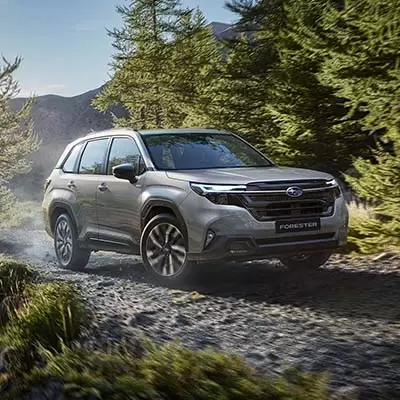
Looking for the best of both worlds?
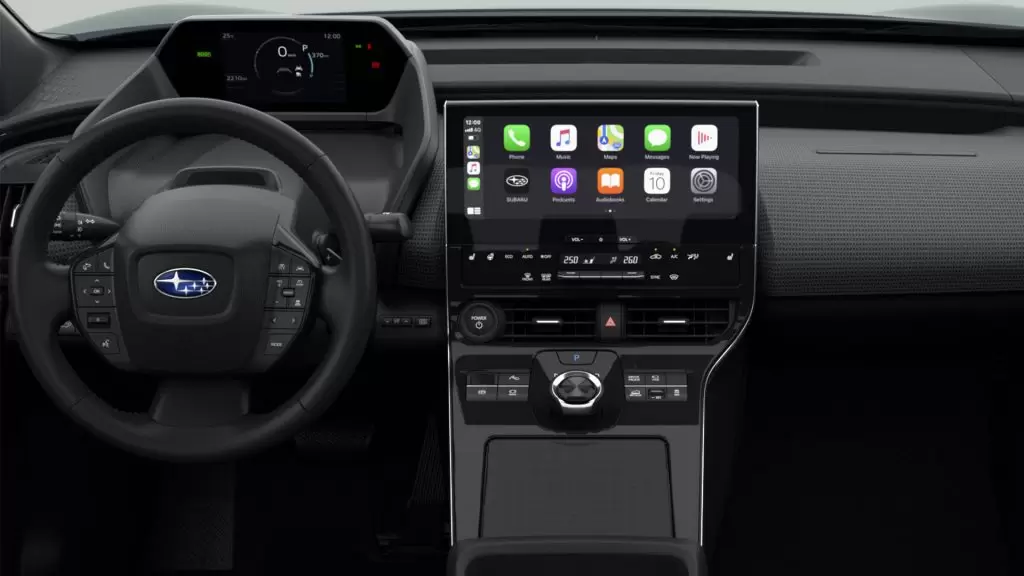
See all the innovations at the heart of our electric cars

Discover our flexible finance offers for EVs
Subscribe to Subaru news

Subscribe to Subaru news


